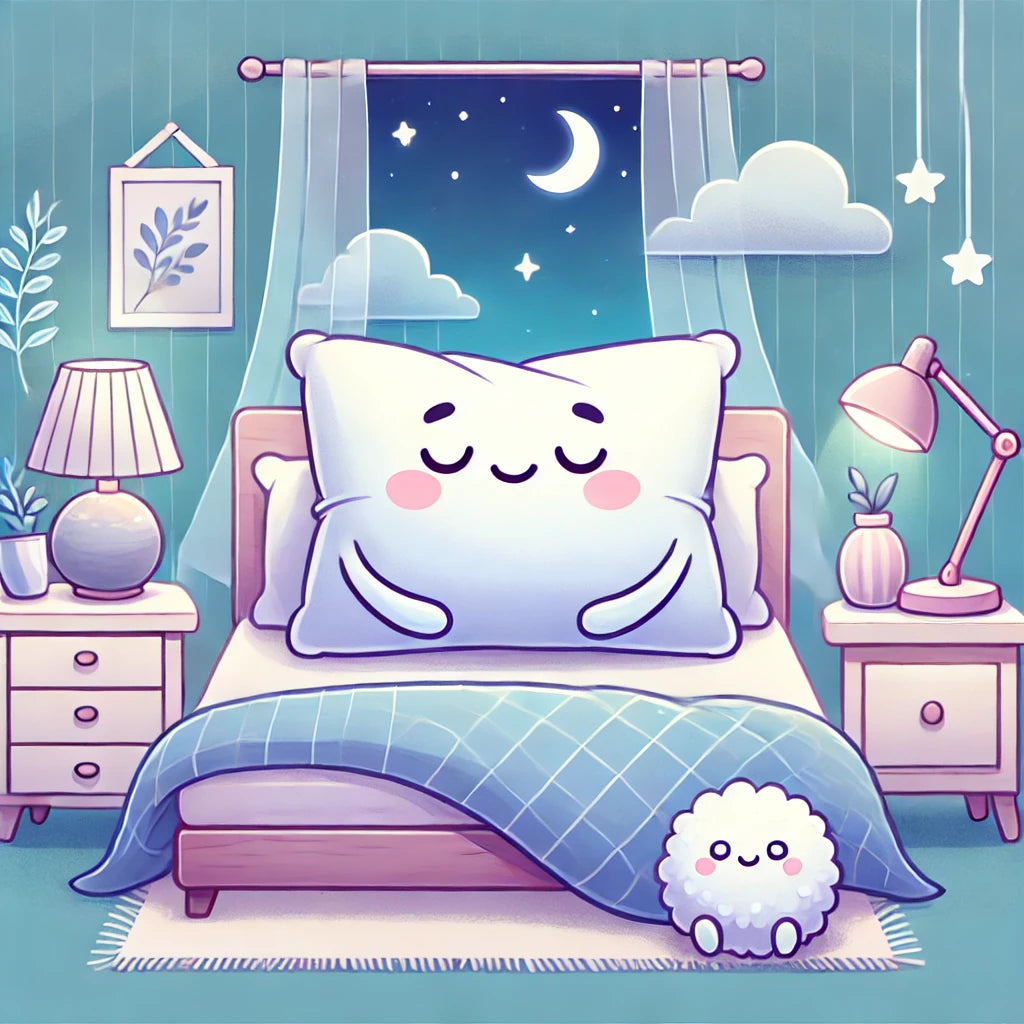Improve Your Sleep Quality: Tips for a Restful Night

Sleep is one of the most crucial aspects of maintaining physical and mental health. However, with the fast pace of modern life, many people struggle with getting a good night’s sleep. Whether it's trouble falling asleep, waking up frequently, or not feeling rested after a full night's sleep, improving sleep quality is vital for overall well-being. In this blog post, we'll explore some effective tips to enhance sleep quality and how the right products can make a significant difference.
1. Invest in the Right Mattress and Pillow
The foundation of a good night’s sleep starts with a mattress and pillow that support your body. A mattress that is too firm or too soft can lead to back pain and discomfort, while an unsupportive pillow may cause neck pain.
- What to Look for: Memory foam or hybrid mattresses that adapt to your body’s shape, providing both support and comfort. Look for pillows designed for specific sleep positions, like back or side sleeping.
- Product Tip: At Restezzy, we offer a range of innovative sleep products designed to relieve pressure points and provide optimal support while you sleep.
2. Establish a Relaxing Bedtime Routine
Your body needs signals to know when it's time to wind down. Creating a relaxing pre-sleep routine can help signal to your brain that it’s time to rest.
- Tips: Reading, taking a warm bath, listening to soothing music, or practicing mindfulness meditation are all great ways to relax before bed. Try to avoid screens (TV, phone, tablet) at least 30 minutes before sleep as blue light interferes with melatonin production, the hormone responsible for sleep.
3. Create a Sleep-Friendly Environment
Your bedroom should be a haven for relaxation. Consider the following aspects:
- Lighting: Keep the room dark or use blackout curtains to block out any light. Even small amounts of light can disrupt your sleep rhythm.
- Temperature: Keep the room cool, as your body naturally lowers its temperature when preparing for sleep. A room temperature between 60-67°F (15-20°C) is considered optimal for sleep.
- Noise: Use white noise machines, earplugs, or calming sounds if external noise is a problem.
4. Be Mindful of Your Sleep Position
The way you sleep can impact your overall comfort and how rested you feel. For example:
- Back Sleepers: Use a supportive pillow under your knees to maintain the natural curve of your spine.
- Side Sleepers: Place a pillow between your knees to keep your hips aligned, reducing pressure on your lower back.
- Stomach Sleepers: Try to switch positions as this can lead to neck and back strain. If unavoidable, use a very soft pillow to minimize stress on your neck.
- Product Tip: Restezzy offers ergonomic pillows and mattress toppers specifically designed for various sleep positions to maximize comfort and reduce pain.
5. Watch What You Eat and Drink Before Bed
Certain foods and beverages can disrupt sleep. Caffeine, alcohol, and heavy meals before bed can cause discomfort and keep you awake.
- What to Avoid: Caffeine (found in coffee, tea, and chocolate) should be avoided at least 4-6 hours before bedtime. Alcohol may make you feel drowsy, but it can lead to disrupted sleep cycles later in the night.
- What to Include: Herbal teas like chamomile or Valerian root can promote relaxation, while a small snack rich in tryptophan (such as turkey or almonds) may help you fall asleep faster.
6. Stick to a Consistent Sleep Schedule
Consistency is key to improving sleep quality. Strive to maintain a consistent sleep schedule by going to bed and waking up at the same time each day, including weekends. This will assist in stabilizing your body's internal clock, which in turn can make falling asleep and waking up feeling rejuvenated easier.
7. Manage Stress and Anxiety
Sleep disturbances are often caused by stress, which is very common. Engaging in relaxation techniques such as deep breathing, yoga, or journaling before bed can help clear your mind of worries and allow you to drift off more easily.
8. Limit Naps During the Day
While naps can be beneficial, excessive or late-day naps can make it difficult to fall asleep at night. If you need to nap, try to limit it to 20-30 minutes in the early afternoon.
9. Get Regular Exercise
The quality of sleep can be enhanced by engaging in regular physical activity, but the timing of the activity is crucial. Exercise earlier in the day, as vigorous activity close to bedtime can have the opposite effect by raising your heart rate and body temperature, making it harder to fall asleep.
10. Consider Sleep Aids or Devices
In addition to lifestyle changes, sleep aids like white noise machines, sleep masks, or even specially designed sleepwear can contribute to a better night’s rest.
Conclusion
Improving your sleep quality requires a combination of the right environment, habits, and products. By making small adjustments to your sleep routine and investing in products designed to enhance comfort, you can experience more restful nights and wake up feeling refreshed. Restezzy offers a range of innovative sleep solutions that cater to your specific needs, helping you achieve the quality sleep your body deserves.


